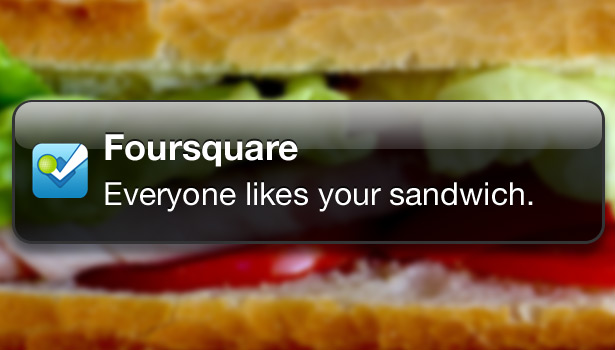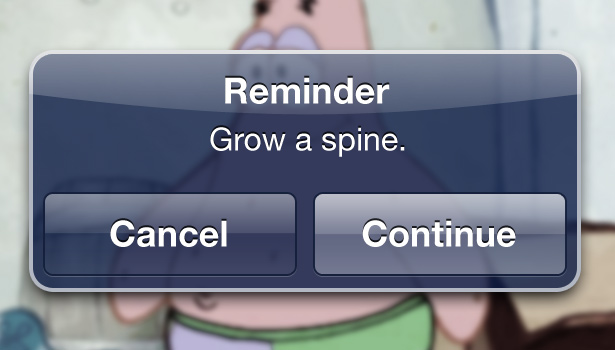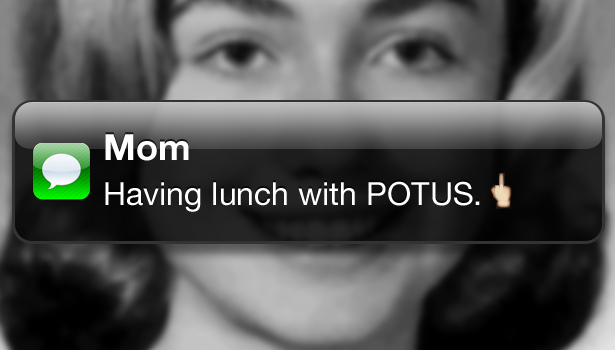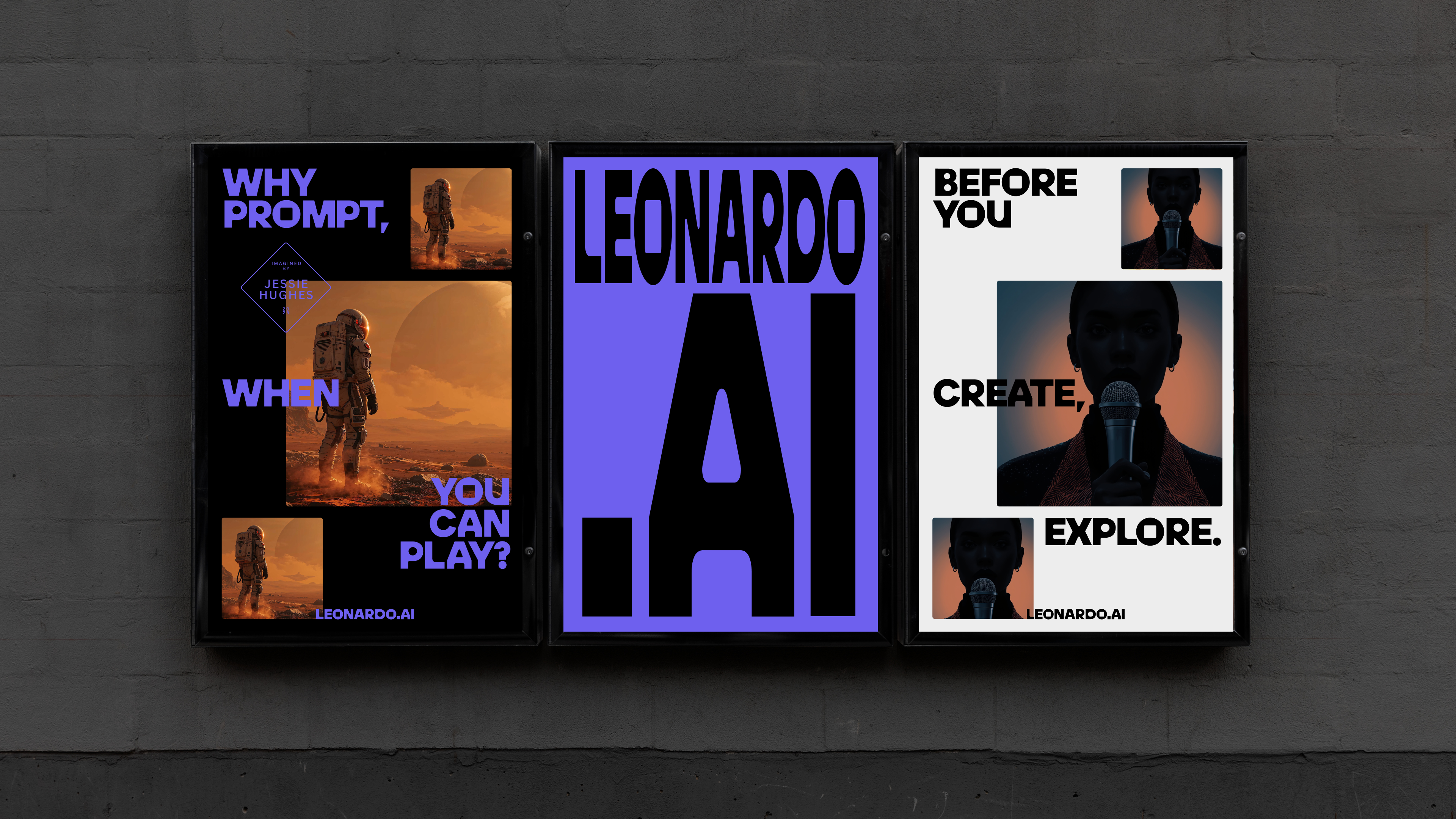10 tips for being a better designer (and person)
Upgrade your career with Mike Monteiro's ten tough love tips, and you'll end up a better human being for it.
Sign up to Creative Bloq's daily newsletter, which brings you the latest news and inspiration from the worlds of art, design and technology.
You are now subscribed
Your newsletter sign-up was successful
Want to add more newsletters?

Five times a week
CreativeBloq
Sign up to Creative Bloq's daily newsletter, which brings you the latest news and inspiration from the worlds of art, design and technology.

Once a week
By Design
Sign up to Creative Bloq's daily newsletter, which brings you the latest news and inspiration from the worlds of art, design and technology.

Once a week
State of the Art
Sign up to Creative Bloq's daily newsletter, which brings you the latest news and inspiration from the worlds of art, design and technology.

Seasonal (around events)
Brand Impact Awards
Sign up to Creative Bloq's daily newsletter, which brings you the latest news and inspiration from the worlds of art, design and technology.

If you're going to Generate San Francisco on 15 July then there's a treat lined up to finish off the main conference and ease you into the afterparty.
Mule co-founder and supportive antagonism proponent Mike Monteiro will be delivering the day's final session – In Praise of Ordinary People – and if you've ever seen any of his previous conference talks then you'll know it'll be an unmissable combination of insight, humour and swearing. "We want to disrupt," he says, "yet we end up disrupting the lives of those who can least afford it. We need to do better."
He'll be exploring how we can do this in his talk; for now, though, here are his 10 tips on how you can be a better designer, and become a better person at the same time.
01. Choose better problems to solve

Designers are, by definition, problem-solvers. And the world has never been so blessedly full of problems. Our infrastructure is rotting, the economy is crap, Wall Street is awash with criminals and millions of people can’t get basic medical care, food and water. We don't need another app to rate your sandwich. We don't need to know when we go to sleep and get up. We do not need digital farms. We need real ones. We need fresh water. We need solutions for the apocalypse.
Let's find problems to solve that actually improve people's lives
We have more processing power, affordable tools, and combined intelligence right this very minute than at any point in the history of design. We are using it to build shit. It's time to aim higher. Let's find problems to solve that actually improve people's lives.
Whether it's figuring out a better way to access medical records, figuring out how 14 year olds can stop carrying forty pounds of textbooks back and forth to school every day, or a reservation system for the communal rooftop farm in your building, there has got to be something more beneficial to society than the next Facebook clone.
02. Stop stealing crap
Don't get me wrong. I'm not against stealing. I'm against the quality of junk you're stealing.
Sign up to Creative Bloq's daily newsletter, which brings you the latest news and inspiration from the worlds of art, design and technology.
Design is the collective knowledge of all the design that has been done before. So take advantage of how others have solved a particular problem. Learn from what they did and see if you can take it to the next evolutionary step.
Do I mean that you should literally steal their code or drop their screenshots into your own work? No. I'm telling you to be aware of and take advantage of the learning that came before you. Be aware of yourself in that timeline. And become the person who next generations will steal from.
Don't be afraid to steal, just steal the right stuff. I am old enough that my first book on how to make websites was called View Source. If we saw something cool, we viewed the source. We copied it. We tried doing it ourselves. Then we added something new to that, put it online, and somebody came along and copied that.
You have not been alive that long. Design has been with us since the creation of the universe. Be aware of it, explore it, take from it and put something new into the timeline once in a while for someone else to steal. Trying to re-solve a problem that has been solved by millions of other designers without the awareness of what they did isn't just a sin of ignorance; it's a sin of ego.
03. Stop trying to save bad work
The most common question I get from designers after pointing out what is wrong with their work is, "Can I save this?"
You are not Jesus and comps aren't for saving. If something isn't working, start over. Otherwise the goal you're working towards is saving your work, not solving the problem.
Also, comps do not have feelings. You are not abandoning them. (You have no idea how much therapy that sentence took. Seriously.)
This urge comes from not wanting to feel like the time they've spent on that comp is wasted. The only possible way you can waste time is by being dishonest with yourself about its value. If you just spent an hour on a comp thinking it was working, then that was time spent honestly trying to solve a problem.
The minute you realise the comp isn't working and you start trying to "save it", you’re no longer working towards good design. You're working towards ego salvage. You gonna bill for that? That's what I mean by dishonest time.
04. Stop being your own obstacle

I spent the first 10 years of my career saying things like, "If I could just do this work the way I know it should be done...” and convincing myself that someone else was keeping me from making better choices. I'll often be reviewing work with another designer and they'll say, "Well, if I were doing this...” I stare back at them in astonishment until they realise what they've said. What is this strange gene that makes designers handicap themselves?
Stop designing the compromises you expect to have to make. Your fear of being wrong wins out over your fear of having to convince someone you’re right. Your client is in your head with you. Telling you to make the photo smaller, the logo bigger, paginating the multi-page article. You're choosing the typeface you think your client will like, not the one that solves the problem best.
How horrible for a client to have gone out and found a good designer and then get handed work that looks like something they would have done. Clients deserve your best work, not their best work. Really good clients, the ones I want you to work with, would rather be challenged than pandered to.
Always design the best choices. Compromises will always come later on down the road. With much argument. And after much salesmanship. But if you’re coming to the table with a compromise in hand, even before you've tried selling your best work, you'll end up losing the client’s respect – which you were so naively craving anyway.
You can't design in fear. Don't throw the fight before a punch gets thrown.
05. Blame yourself first
Blow a deadline? Miss a requirement? It happens. Raise your hand. Let everyone know it's your fault. The sooner you take responsibility for something the sooner you can start fixing it. Excuses help no one. Everyone respects the person who can admit their mistakes. No one respects the weasel trying to pin the blame on their teammates.
This year, everything will be your fault. It'll feel good.
06. Stay curious
Don't be the designer who gets proficient and then stops. It's easy to make a steady living doing that one thing you're really good at. Until something comes along and obliterates it. Aim higher. Remember those guys who were really good at Debabelizer? (Ask your parents.)
Don't spend your career satisfied with doing things you're good at – try to do things you're not good at. You’ll eventually be good at more things, and you'll know what you honestly suck at. And you'll have a longer career.
There's a ton of great shit coming down the pike this year, including stuff that's gonna surprise us. Not to mention the stuff we're still getting used to from last year. The future's not only fun, it's messy. Welcome it with open arms.
07. Learn to make mistakes faster
The first thing I do when I sit down with a designer is sneak a peek at the file name. If it's 2pm and we’'e looking at "acme_article_1.psd", I know we're in trouble. By 2pm we should be looking at double digit version numbers. If we're not, then chances are the designer's being too precious and careful. They're either not willing to make mistakes or not recognising them fast enough.
Even if you think you've nailed it on the first try (you haven't, by the way), challenge yourself to try it another way. You'll learn more by trying something 50 different ways than by stubbornly trying to make your first idea work.
08. Stop using your mom as an example of a stupid person
How many times have you heard, "We need to make this so easy my mom could use it!"? The goal is worthwhile. The example is condescending.
Do you think Chelsea Clinton asks herself if her mom would understand something complex? No. Because her mom is a badass. And while your own mom may not be the Secretary of State, she was smart enough to raise kids who learned to read, navigate the internet and become career professionals. She's no dummy. So please stop using her as an example of one. (Not to mention that we're using a beloved family member to thinly veil an industry-wide sexism problem.)

Stop using "mom" as a shortcut for finding out who the people you're actually designing for are. Find out how the people you're designing for actually run their lives and handle their business. Good design comes from empathy, not stereotyping.
And send your mom flowers. She'll know what to do with them.
09. Learn to write
Ninety percent of design is communication. Half of that will be done in writing. A designer who can't write can't defend their work. And work that can't be defended will die.
I've seen a lot of good work get trampled on because the designer released it into the wild without a clear explanation of how it mapped to strategies and goals, a defense of how it met project requirements, and a well-articulated advocacy from its designer. The biggest lie you've all been fed is that good design sells itself. Whoever told you that couldn't write.
10. Get comfortable arguing
Remember when I said half the communication you'd be doing would be in writing? Well, here's the other half. You're going to spend a lot of time presenting your work to people. They will ask you questions about your work. Questions it’s your job to know how to answer.
At some point they may ask you to make changes to the work that you feel are detrimental. You'll stand your ground. You'll be amazed how many times people are just looking for a solid justification. Stop giving away the farm just because someone asked for clarification. Just calmly tell them why you think your solution is right.
You're the line of defense for design. It's your job to protect good design. No one else's. Sometimes you'll win, sometimes you'll lose. But you will always do your job. Above all, remember that you have more power over situations you find yourself in than you’ve been giving yourself credit for. Start using it.
Don't miss Mike's talk at Generate San Francisco; if you book now you'll become a founder member and receive 50% off all future Generate conferences worldwide. Can't make it? Why not come to Generate Sydney or London instead?
This is an updated version of an article that previously appeared on Creative Bloq.
